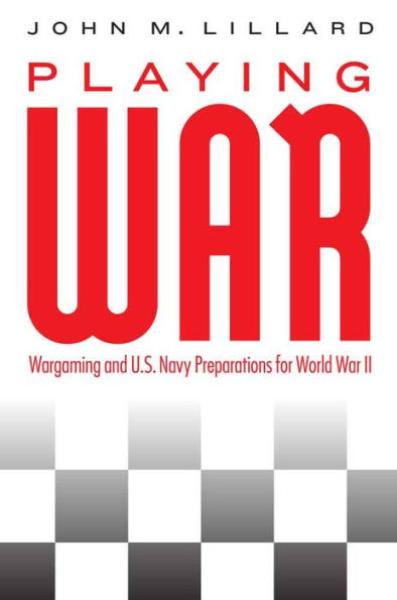Description
Recent histories of the interwar period explore how the U.S. Navy digested the impact of World War I and prepared itself for World War II. However, most of these works overlook or dismiss the transformational quality of the War College war games and the central role they played in preparing the navy for war. To address that gap, Playing War details how the interwar navy projected itself into the future through simulated conflicts. Playing War recasts the reputation of the interwar War College as an agent of preparation and innovation and the war games as the instruments of that agency.
John M. Lillard is a manager at Newport News Shipbuilding in Virginia and an adjunct professor of history at Tidewater Community College. He served fifteen years as a naval officer, was previously an operations analyst who worked in support of numerous navy, marine corps, and air force acquisition programs, and has worked in the field of wargaming, modeling, and simulation since 1995. His work has appeared in the Naval Institute's Proceedings magazine and Rotor and Wing.
"Playing War is an outstanding study of the U.S. Naval War College's interwar institutional culture. More than that, this book fills a major historiographical gap when it comes to not only the college's history but also that of the navy and its war-planning methods. . . . This book is a must-read for any historian of the U.S. Navy or U.S. national security policy history."--Hal M. Friedman, author of Digesting History: The U.S. Naval War College, the Lessons of World War Two, and Future Naval Warfare, 1945-1947
--Hal M. Friedman (9/14/2015 12:00:00 AM)
"Playing War successfully bridges an interwar gap in naval historiography, and would be a useful research tool for those interested in the academic side of US naval officer preparations for the Second World War."--Charles Ross Patterson II, Northern Mariner--Charles Ross Patterson II "Northern Mariner"
"A valuable book with a lot of detail that has never been assembled in one place before, and Lillard's appraisal of the roles of the wargames is on target."--Capt. Wayne P. Hughes Jr., U.S. Navy, Ret., professor of practice at the Naval Postgraduate School and author of Fleet Tactics: Theory and Practice--Captain Wayne P. Hughes Jr. (9/14/2015 12:00:00 AM)
"Lillard makes an excellent case that the Pacific War was won on the game floor of the Naval War College."--Albert A. Nofi, author of To Train the Fleet for War: The U.S. Navy Fleet Problems, 1923-1940
--Albert A. Nofi (9/14/2015 12:00:00 AM)
"The best compilation of information and analysis of the wargaming efforts at the Naval War College between the wars [that is] currently available. It provides a needed corrective to some of the inaccurate mythology that has come to surround this subject."--Peter Perla, author of The Art of Wargaming: A Guide for Professionals and Hobbyists
--Peter Perla (9/14/2015 12:00:00 AM)
"This is an important book. It fills a gap in the scholarship of a period. Just as the future admirals made their mistakes on the gaming surfaces at Newport instead of the waters of the Pacific, so this book may help us prepare for future wars. It does this not by telling readers what to think, but by showing us how we can learn to think."--Matthew Caffrey, Technology and Culture--Matthew Caffrey "Technology and Culture"
"I highly recommend that military professionals read this book."--Phillip G. Pattee, Naval Historical Foundation--Phillip G. Pattee "Naval Historical Foundation" (12/14/2016 12:00:00 AM)
"John M. Lillard's study of war games, aptly titled Playing War: Wargaming and U.S. Navy Preparations for World War II, dissects the players, game processes, and phases of wargaming during the interwar period."--Courtney Webb, Nautical Research Guild's Model Ship World--Courtney Webb "Nautical Research Guild's Model Ship World" (3/15/2018 12:00:00 AM)
Product Details
- Potomac Books Brand
- May 1, 2016 Pub Date:
- 1612347738 ISBN-10:
- 9781612347738 ISBN-13:
- 224 Pages
- 9.31 in * 6.21 in * 0.83 in Dimensions:
- 1 lb Weight:




